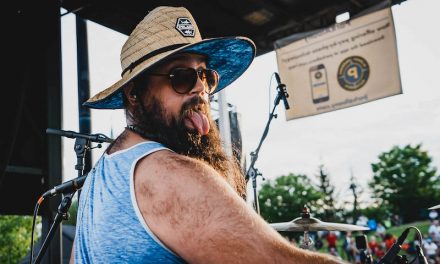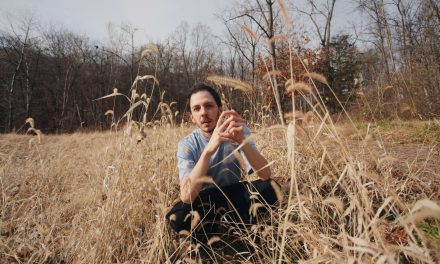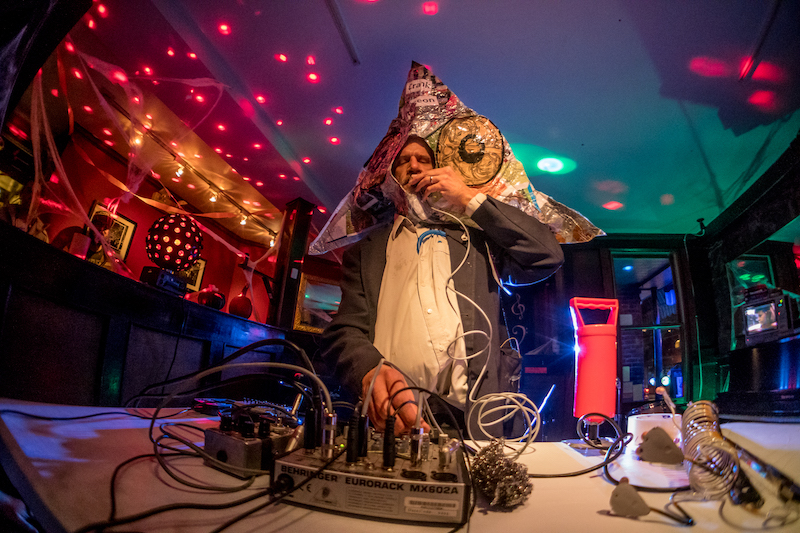This article first appeared in The Alt on March 6, 2018.
Photos by Kiki Vassilakis
Charles O’More is pensive and soft-spoken as he navigates the labyrinth of Rensselaer Polytechnic Institute’s campus, but when asked about his musical interests, stars quite literally appear in his eyes. Put him behind a microphone and a floodgate of emotion and power rush out in a matter of moments. He transforms.
The 18-year-old soul artist came to Troy by way of Bowie, Maryland—outside of Washington, D.C. Though born in Nigeria, this is where he was raised, by a family who celebrated his vocal talents from the age of 7.
“I sang in my elementary school choir, I also did drama—acting, dancing, all of that—and eventually stuff started to get more serious,” O’More said. “At my tenth birthday party, my dad had me sing two songs. A lot of people were there and they started inviting me to their church events and other birthday parties.”
By 11, he was getting industry experience in singing, modeling and acting gigs through a talent scout agency. He made his first demo at 12 years old.
“After that, I started growing into myself as an artist, figuring out my message and my own style,” he said.
Pursuing a degree in biomedical engineering, O’More received a scholarship from RPI last year and plans on staying at the Troy university until he completes his masters degree, which may just be in business. “Because why not,” he shrugs.
But after he’s finished, O’More doesn’t plan on chasing a career in either field. His life, he hopes, will be dedicated to music.
“I know for a fact I want to perform at the Grammys, even if I’m not being nominated,” he grins when asked about his goals.
“It has grown from something that’s just an interest, or something that I used to do, to becoming something that I yearn to do 24/7. I’m always thinking about, ‘How I can make whatever song I wrote last week better? How can I get my message out there?’”
O’More’s singing style and messages and are grounded in his choir roots and family faith.
“I started out doing gospel music, however, I’m aware that everybody’s not a Christian. Everybody doesn’t view things the same way. I take my values and make them into something that everyone can still relate to, so the music is still universal, it’s not boxed-up into gospel,” he says.
In O’More’s song “Unconditional,” he explains, the artist personifies the unconditional support system he has found growing up in faith in a comforting ballad for listeners who are feeling isolated.
“In my life, I’ve been in a lot of situations where people have proven themselves to be conditional, they’re there for a certain time and then go away. I feel like a lot of people, maybe everyone, can relate to that. For me, the one person in my life who has been God. I think that embodies what I do.”

“I take those concepts and put them into my songs so everyone can relate to them—messages of inspiration, messages of love, messages of hope, everything positive,” he adds.
O’More spends most of his free time in the RPI campus’ West Hall working on his craft. Here, he checks into a room by the week to practice and record his original songs, dragging along all of his own equipment: a studio mic and shield, filters, a boom arm and his laptop, recording through Soundtrap and experimenting with new softwares.
As the artist writes all of his music, composes the instrumentals and records both main and background vocals. It’s a project to tackle, but he hopes to put out an EP by August.
“It’s a big project for me because I’m trying to keep my music as current as possible, while still being soulful,” he said.
His real love of the craft lies in performing, which he does semi-regularly at Troy Kitchen. After walking onstage to an open mic a few months ago, he was hooked.
“I’m performing a lot, especially up here, which is crazy because I’ve only been here for a few months but I’m starting to make a name for myself.”
Troy Kitchen has been his biggest source of networking and musical support. It’s where he has met local producers who help him figure out the ins and outs of studio production and provide another pair of ears for review. It’s the hub for a number of social and creative organizations like Poetic Vibe, which hosts the Monday night open mic that welcomed O’More out of his shell and onto the stage.
“For me, music is a safe spot. I find that I lose myself when I’m on stage performing,” he says. “Every time I’m up there, I’m subconsciously telling myself, ‘This could be your last time,’ so I have to give it my all. I’m doing everything like it’s the last time I’ll ever get a chance to.”
His dedication to that moment has entranced audience members who feel moved by his stage presence and delivery.
“I think people really connect with the emotion that I put into my work,” O’more says. As an artist, one of the things I really dig is making sure that whoever is listening is feeling what I’m feeling. If it’s a song where I’m trying to motivate someone, at the end I want them to be ready to go tackle the world.”
The connection certainly isn’t lost in his recordings.
In “Be Good To Me,” his range is off the charts. O’More reaches into the depths with a warm, velvety, caressing chorus before belting out with emotional power. It’s expressive and building as he makes his way up to a jaw-dropping falsetto finish.
“I want people to know that I was here, as cliche as that sounds,” he says, thinking about legacy. “When someone says that my music is soulful, that someone can get lost in my music, it lets me know that I’m doing the right thing and that I’m impacting someone’s life. Right now I’m not looking for a huge platform or millions of followers. I feel like that will come in due time–to whatever degree it’s gonna come in. What’s most important is the message is being communicated.”
Listen to Charles O’More on Spotify, Tidal, Apple Music and SoundCloud.





